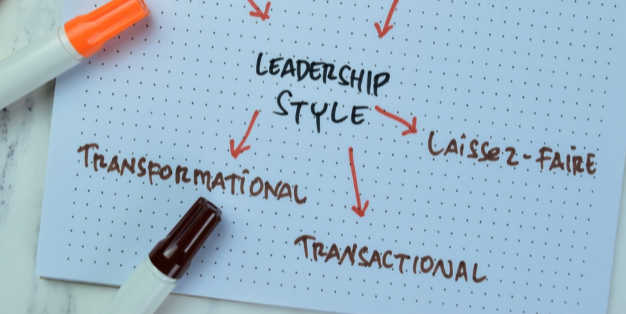In a recent HigherEdJobs’ Careers & Coffee conversation, host Andy Hibel, chief operating officer and co-founder of HigherEdJobs, sat down with three association leaders to explore how getting involved in — not just joining — an association can shape your career at any stage.
For faculty, staff, and professionals across higher education, associations offer more than networking or conference sessions. They can be spaces to learn new skills, exchange ideas, and find a professional community. To unpack those benefits, Hibel opened the discussion by reminding attendees why association work matters now more than ever.
“When we talk about professional development, it’s easy to think about workshops or credentials,” Hibel said. “But beyond paying dues, the real growth happens when you raise your hand, step into something new, and keep showing up.”
· Kathleen Hermacinski, president-elect of the Illinois Chapter of the College and University Professional Association for Human Resources (CUPA-HR)
· Rob Henry, vice president of people, culture, and talent at the Council for Advancement and Support of Education (CASE)
· Matt Trainum, vice president of networks and strategic partnerships at the Council of Independent Colleges (CIC)
Together, they explored how association engagement can strengthen confidence, broaden perspective, and expand opportunities for growth across higher education.
Why Association Involvement Matters
The panelists agreed: membership alone is only the first step. To experience real growth, professionals have to engage intentionally.
Trainum encouraged attendees to approach association events with purpose rather than passivity.
“Go to the conference, but go with goals,” he said. “Set a goal to meet three or four peers facing the same challenge you are, or sit with people you don’t know at breakfast. These people are friends you just haven’t met yet.”
Hermacinski emphasized that stepping out of your comfort zone is the key to development.
“You have to be comfortable being uncomfortable when getting involved,” she said. “Take on a small leadership role — it doesn’t have to be forever — but you’ll see the return in your growth and in the relationships you build.”
Henry added that participation signals dedication.
“Paying dues is transactional,” he said. “Showing up is about contribution — volunteering, raising your hand, and creating accessibility for others.”
Hibel closed the segment by connecting their points back to the everyday realities of campus work.
“Membership is easy,” he said. “Involvement takes intention, but you don’t need a leadership title to make an impact.”
Lessons You Can’t Learn From Your Day Job
Serving on a board or committee provides an inside look at how higher education operates beyond one institution — something each guest said has shaped their career.
Hermacinski explained that she learned practical skills she never encountered in her HR role.
“Robert’s Rules of Order, conference planning, sponsorships — these are things I never would’ve learned within my institution,” she said. “They gave me confidence and helped me grow as a professional.”
Henry said the stretch of serving outside your expertise accelerates leadership growth.
“Sometimes you’re asked to join a finance committee and think, ‘That’s not my area,’ but you learn fast,” he said. “That process makes you a better leader wherever you go.”
Trainum described how association work expands your perspective.
“You realize campuses aren’t that different — the challenges just show up in different ways,” he said. “You also learn that the grass might not be greener, but there’s grass in other places — and you can bloom there, too.”
Measuring the Return: Time, Impact, and Joy
For many higher ed professionals, time is the hardest resource to spare. Hibel acknowledged the strain.
“Budgets are tight, and staff are stretched thin, but the time you invest in association work pays dividends in growth and community,” he said.
Henry reframed the traditional notion of ROI to include meaning.
“Think about your return on impact and your return on joy,” he said. “It’s not only what you gain, but how your contributions build confidence and give back to the field.”
Hermacinski said her involvement reenergizes her instead of adding stress.
“CUPA-HR fills my cup,” she said. “When I attend a webinar or board meeting, I leave with new ideas and excitement to bring back to my institution.”
Trainum encouraged professionals to use reflection as a barometer.
“Ask yourself, ‘Am I learning? Am I contributing? Am I enjoying it?'” he said. “If the answer is yes, that’s your measure of success.”
Turning Points in Leadership
Each panelist described a moment where association involvement directly changed the trajectory of their career.
For Hermacinski, persistence paid off after several attempts to join CUPA-HR’s Wildfire — now Ignite — program.
“When I finally got in, I gained mentors, peers, and experiences that helped me land my current role,” she said. “It changed the trajectory of my career.”
Trainum shared that his own turning point started with one small act of initiative.
“I literally just emailed a committee chair and said, ‘Can I help?'” he said. “They let me in, and a year later, I was chairing the committee. That one email opened every door that came next.”
Henry reflected on learning from an opportunity he once declined.
“I turned down a leadership role once because I thought I was too busy,” he said. “When I finally said yes years later, it became one of the most rewarding experiences I’ve had.”
Hibel tied their reflections together with a message to anyone hesitating to get involved.
“Persistence and presence,” he said. “That’s what leads to opportunity.”
How To Take the First Step
For those new to association life or curious about where to start, the panel offered steps for getting started.
Hermacinski encouraged professionals to begin small but stay visible.
“Raise your hand,” she said. “Volunteer. Sit with someone new. Start small, but start somewhere.”
Henry recommended proactive outreach.:
“After a session, reach out to a presenter or leader and say, ‘I loved this — how can I help?’ Offer a skill or an idea. That’s how people remember you.”
Trainum offered a straightforward next step.
“Go to the association’s website, find a committee, and email the chair,” he said. “Even if it’s full, say, ‘I can still help.’ That’s how opportunities appear.”
Key Takeaways
Association involvement isn’t just reserved for executives — it’s a great path for anyone in higher ed to consider if they’re looking to contribute and connect.
As Hibel said, “You get out of it what you put into it.”
Watch the full Careers & Coffee conversation on YouTube to see why association involvement could be the key to your next step in higher ed.
About Careers and Coffee:
HigherEdJobs’ Careers and Coffee is a series of live, interactive Zoom conversations with experts in higher education. Designed to help job seekers and higher ed professionals reflect meaningfully on their careers, the series offers expert advice and insights on best practices, emerging trends, and career-related issues. View a list of all sessions.






























